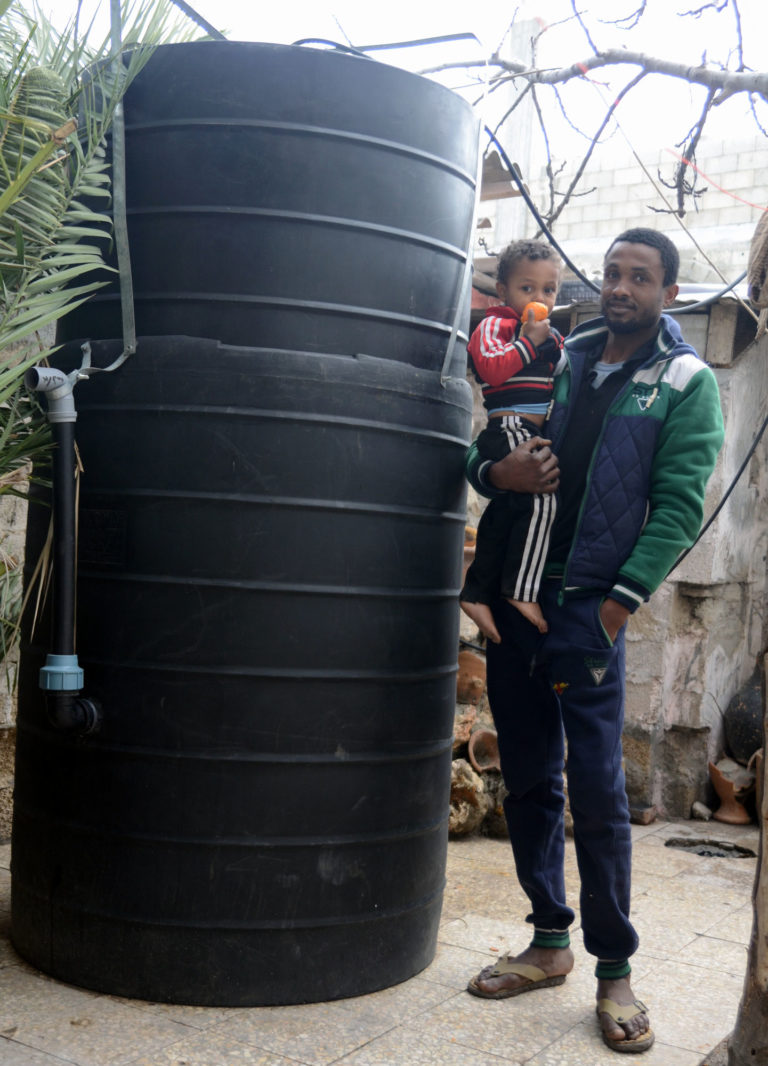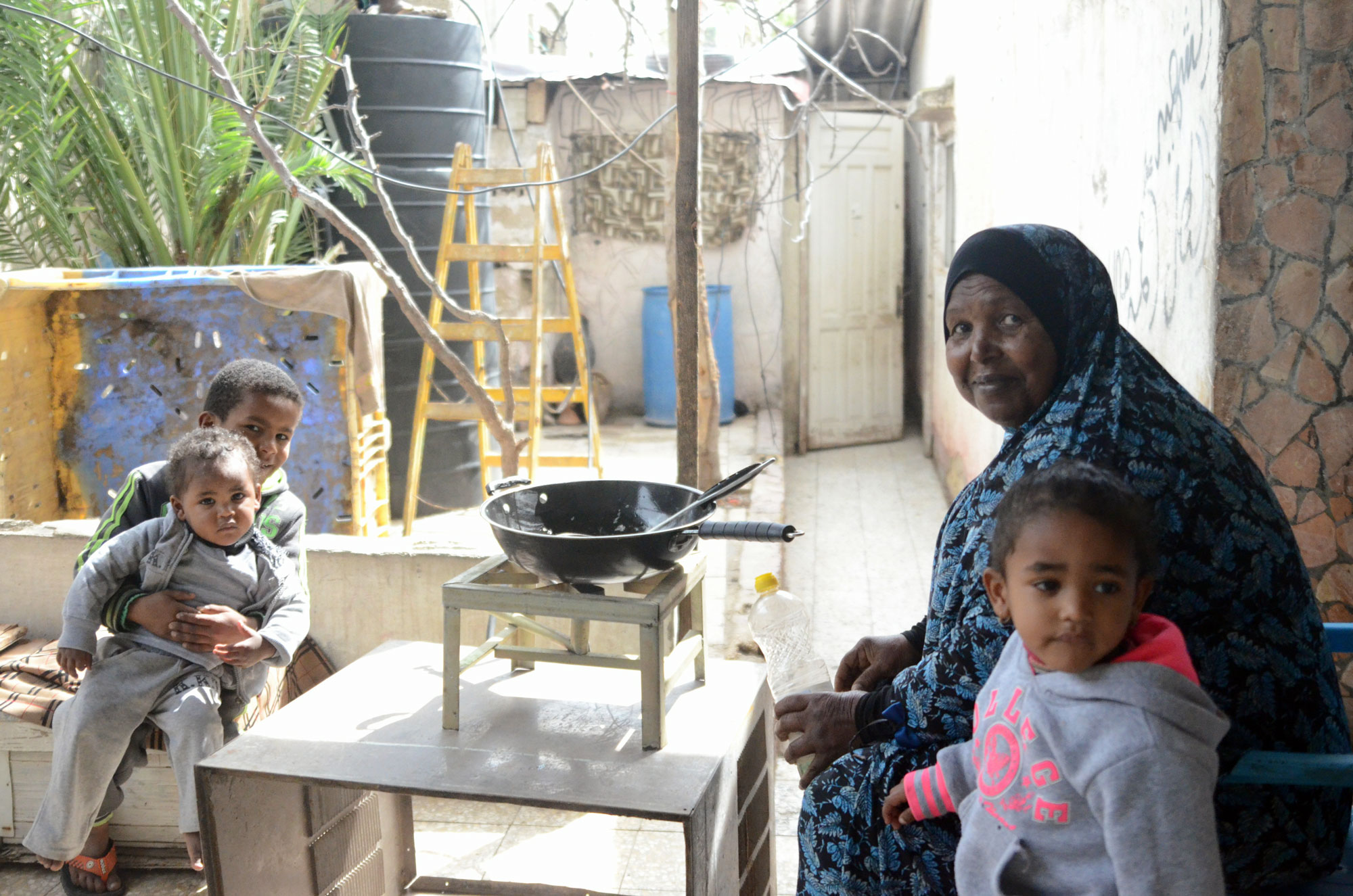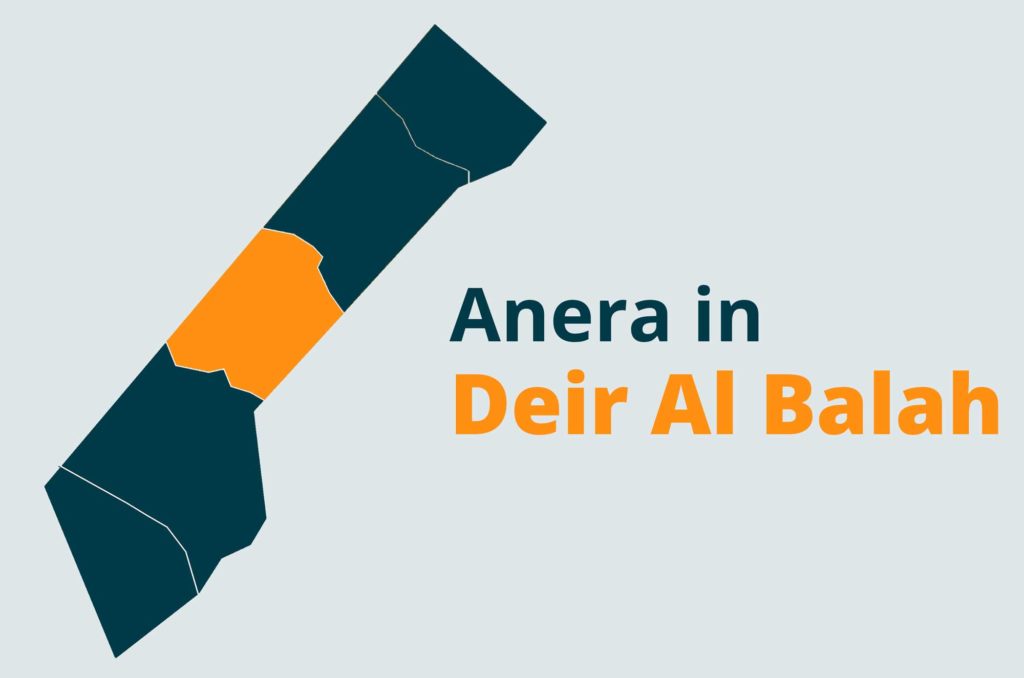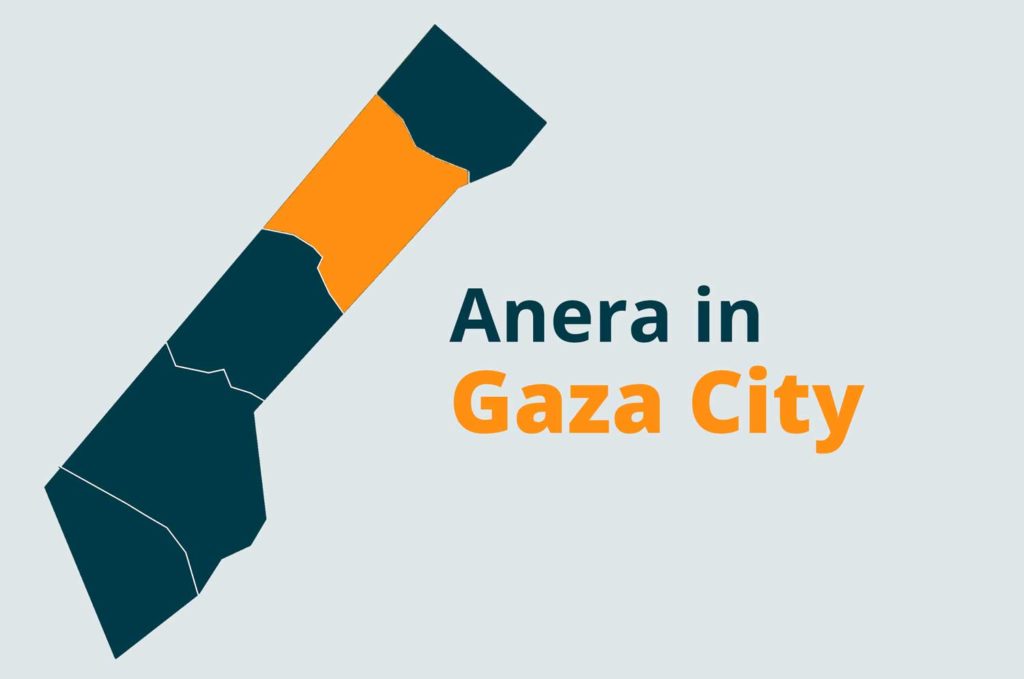Mar, 2015
Mariam Ahmed was tired of waiting in long lines to fill up her gas canister, but she didn’t have any other option. Cooking gas is in short supply in Gaza.
“We queued in long lines to fill our gas tank, sometimes for a whole day and then were often disappointed because the supply station had run out.” She says she had to leave her tank with no guarantee of when it might be filled.
To make do, Mariam and her family would burn wood or plastic sheets for cooking and warmth, knowing full well how unsafe that was. The fire produced toxic gases that are harmful to adults and children alike. Her son Ibrahim Ahmad explains, “It is too smoky. It hurts our eyes and causes us to cough and choke.”
Thanks to Anera’s pilot biogas project, Mariam’s future looks a lot brighter. She proudly demonstrates the new mechanism in her kitchen in the central Gaza town of Deir El Balah. Turning a valve on a narrow pipe, she lights a burner on the floor and instantly there is a strong blue flame. “I couldn’t believe my eyes when I first saw blue flames coming from the stove.”
Mariam is one of 15 Gaza families to receive a biogas digester at the end of 2014. Another 13 marginalized families in the northern West Bank are also participating in the pilot project.
The biogas unit consists of two plastic tanks each with a capacity of 1.5 cubic meters. Animal manure mixed with an equal quantity of water is placed in the first tank, while the second tank is inverted inside the first to collect methane gas that is produced, usually within two to three weeks. The mix is blended by the natural warmth and pressure that provokes bacterial fermentation. This allows the methane to be captured and used for household cooking and heating.
At first Mariam’s family was unsure if it would work but they were eager to try it since the sheep and chickens they raise could easily provide the fuel.


“From here the project idea evolved. We follow the instructions and so far it is working well,” she said.
The biogas technology is simple and practical for families living in rural and Bedouin communities where livestock is abundant.
During the winter months Mariam’s family is able to use the new stove an average of 30 minutes to three hours a day. Ibrahim explains, “The system will work better in warmer weather.”
brahim says the biogas unit is a welcome relief so his family doesn’t have to wait in long lines for cooking fuel. “It has eased a huge burden on us. We use it now for all of our family’s cooking. And, I like the idea that it is a renewable source of energy at no cost.”
The biogas project is the latest of Anera’s many environmental projects and economic development initiatives. When you donate to Anera, you’re helping to providee this kind of sustainable support to Palestinians in Gaza, the West Bank and Lebanon.






